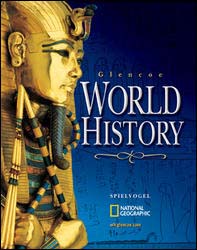Glencoe World HistoryChapter 20:
Mass Society and Democracy, 1870–1914Chapter OverviewsThe Second Industrial Revolution transformed the Western industrialized societies. Cities grew, mass forms of culture and politics emerged, and the revolutionary ideas of Marx, Darwin, Freud, and others left an enduring mark. Section 1 The Growth of Industrial Prosperity
The Second Industrial Revolution introduced important new products, such as steel and chemicals, and new sources of power, such as electricity and the internal-combustion engine. These changes led to cheaper transportation and made amenities such as electric lights widely available. Higher wages and lower transportation costs made consumer products more affordable, and industrial production rose sharply. These changes occurred primarily in northern and western Europe. Other parts of Europe remained largely agricultural. Industrial workers seeking to improve their working and living conditions formed socialist political parties and trade unions. Socialism was based on the ideas of Karl Marx, a nineteenth-century thinker who blamed capitalism for the horrible conditions of industrial workers. He predicted that capitalism would be overthrown in a violent revolution. However, many socialists sought change by non-revolutionary means. Section 2 The Emergence of Mass Society
By the end of the nineteenth century, a mass society emerged in which the concerns of the majority of the population—the lower classes—were central. Many people moved to the cities. Despite crowded urban conditions, most people after 1871 enjoyed an improved standard of living. Europe's elite now included both aristocrats and a wealthy upper middle class. The middle class expanded to include a wide range of professions. Increased leisure time also allowed the middle class to serve as a model of family life and proper social etiquette. Many women now found jobs as low-paid white-collar workers. Feminists began to demand equal rights and full citizenship, including the right to vote. Most Western governments began to set up primary schools to train children for jobs in industry. Society became more literate and enjoyed new mass leisure activities. Section 3 The National State and Democracy
By the late nineteenth century, progress had been made toward establishing constitutions, parliaments, and individual liberties in the major European states. In practice, however, the degree of democracy varied. Political democracy expanded in Great Britain and France, while regional conflicts in Italy produced weak and corrupt governments, and an anti-democratic old order remained entrenched in central and eastern Europe. In Russia, working-class unrest led to the Revolution of 1905. After the American civil war, the slaves were freed, but the South remained dominated by white supremacists. American cities grew, and unions campaigned for workers' rights. The United States also gained several offshore possessions. Canada gained new provinces, amid lingering distrust between English- and French-speaking peoples. In foreign policy, European powers drifted into two rigidly opposing camps. Crises in the Balkans only heightened tensions between the two camps. Section 4 Toward the Modern Consciousness
Groundbreaking scientific discoveries of the late-nineteenth and early-twentieth centuries forced a rethinking of the ideas of the Enlightenment. Some of these ideas had a major social impact. Albert Einstein's and Sigmund Freud's works defied the orderly view of reason. Charles Darwin's description of life as a biological struggle for survival led to the Social Darwinism of Herbert Spencer and others. Extreme nationalist ideologies also borrowed from this line of thinking. Europe had a long history of anti-Semitic persecution. The spread of threatening anti-Semitic activity in France, Germany, and Austria-Hungary led many Jews to emigrate. Some went to the United States. Others went to Palestine, where Zionists were trying to restore Jewish life. Writers, artists, and musicians rebelled against traditional literary and artistic styles and created new ones that sometimes shocked critics with their audacity.  | 

















